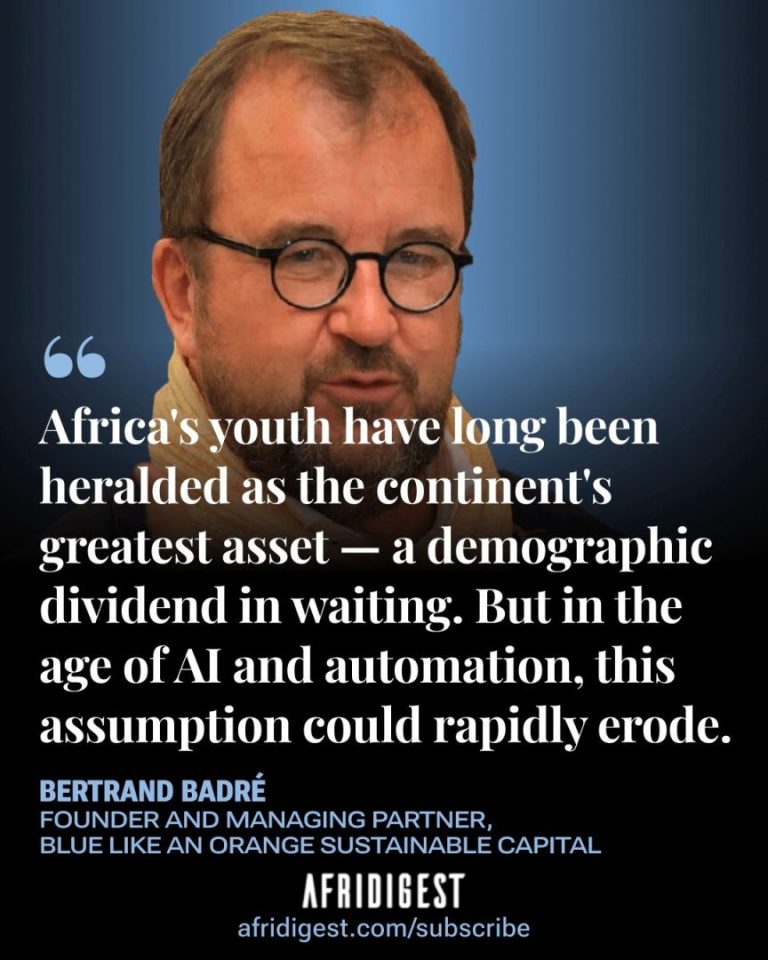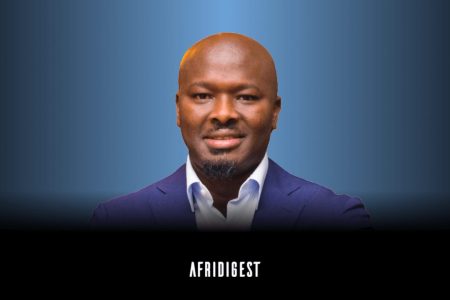Africa’s demographic dividend is in danger.
For decades, policymakers and investors have celebrated Africa’s youth bulge as the continent’s greatest economic asset — a wave of young, energetic workers who will drive growth and prosperity for generations.
But that narrative is failing to materialize, according to Bertrand Badré, Founder and Managing Partner of Blue like an Orange Sustainable Capital and former CFO of The World Bank.
“In the age of AI and automation,” Badré warns, “[the demographic dividend] assumption could rapidly erode.”

The challenge is unprecedented in scale: “Africa must create two to three million jobs per month — something no region has ever accomplished.”
At the same time, the nature of work is changing rapidly, perhaps faster than Africa’s economies can adapt.
“The global economy is shedding low-skill, labor-intensive jobs faster than it is creating them,” Badré explains.
“If Africa’s growing population is not equipped for the industries of the future, the result will be frustration, not prosperity.”
Without deliberate action, Africa’s youth could inherit an economy with fewer opportunities than their parents — not more.
And that would have widespread destabilizing effects. The continent is already seeing early warning signs in ‘Gen Z’ uprisings from Madagascar to Morocco.
But Badré’s call isn’t to abandon optimism about the continent’s youth, rather he calls for urgency.
He urges African governments, global partners, and the private sector to treat the continent’s human capital as what it truly is: strategic capital.
“Investing in African education systems, vocational training, higher education partnerships, and digital literacy is no longer a soft policy area — it’s a hard economic and geopolitical necessity.”
But “the window for credible action is closing,” he warns.
The next five years, says Badré, will determine whether Africa’s youth become the engine of continental growth or a generation stranded between a disappearing past and an uncertain future.
What’s your take?
- Is the continent’s ‘demographic dividend’ narrative still valid in today’s age of AI and automation, or does it need fundamental rethinking?
- What would it take to ensure Africa’s youth are equipped for the industries of the future rather than displaced by them?
- Should investors and governments prioritize human capital development with the same urgency they do with roads, ports, and mines?





Share: